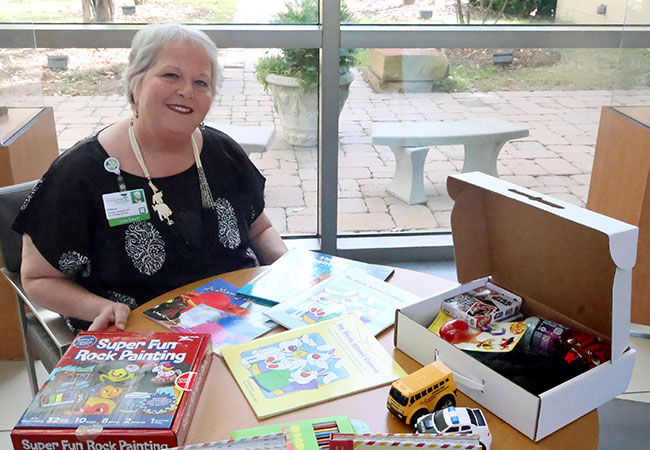
Family Health
Bridging the Gap: Supporting families impacted by mental illness
St. Joseph’s/Candler’s Johnny’s Bridges to Hope helps connect families with resources to navigate a loved one’s mental health journey
When a family member lives with mental illness, it can create challenges that impact the entire family. St. Joseph’s/Candler’s Johnny’s Bridges to Hope program was developed to support those families facing these struggles and to connect them with resources to better navigate their loved one’s mental health journey.
For Ann Lytle, the signs began early. Her late son Johnny never quite seemed like the other kids. He preferred being alone, even on his birthday. Doctors initially believed his behavior was a phase he would outgrow. However, as Johnny grew older, the issues continued, ultimately leading to a severe mental health diagnosis after numerous evaluations and missed school days.
Faced with the realities of mental illness, Ann and her family saw the need for better support and understanding – not just for themselves but for others going through similar experiences. In collaboration with St. Joseph’s/Candler, and through the generosity of the Lytle Family, Johnny’s Bridges to Hope was born.
“This is a fantastic program specifically created for people who don’t feel like they fit in traditional support programs,” says Barbara Moss-Hogan, a licensed clinical social worker who leads Johnny’s Bridges to Hope. She is also an oncology social worker and program leader at the Nancy N. and J.C. Lewis Cancer & Research Pavilion.

Understanding mental illness
Mental illnesses cover a broad spectrum of conditions that affect mood, behavior and cognition. These may result from chemical imbalances in the brain. Common diagnoses include depression, schizophrenia, anxiety and personality disorders.
According to the World Health Organization, nearly one billion people globally live with some form of mental illness.
“We’ve made progress as a society,” says Moss-Hogan. “But there are still people who are afraid to seek help because they fear judgement or stigma. That’s exactly why Johnny’s Bridges to Hope exists – to open up that conversation and let people know they are not alone.”
How do you know when someone needs help?
If you’re concerned that a loved one may be experiencing depression or another mental health disorder, watch for these signs:
- Changes in routine
- Withdrawal from others
- Disheveled appearance or neglect of hygiene
- Avoiding eye contact or appearing downcast
- Talking about suicide or self-harm
- Engaging in risky or self-destructive behaviors
“It’s ok to ask for help,” Moss-Hogan emphasizes. “You’re not alone. I’ll go anywhere there’s a need and help connect you with community resources that can make a difference.”
How Johnny’s Bridges to Hope can help
As the lead social worker for the program, Moss-Hogan provides guidance and counseling to families affected by a loved one’s mental illness. The program’s goals include:
- Helping families understand the illness to improve overall quality of life
- Equipping families with tools to support their loved one more effectively
- Teaching skills to manage disruptive or challenging behaviors
- Reducing stress and caregiver burnout while improving resilience and coping
All services are free and confidential.
To connect with Barbara Moss-Hogan or learn more about Johnny’s Bridges to Hope, call 912-724-9743 or email mosshob@sjchs.org. Moss-Hogan is also available to speak with organizations, community groups or at health fairs.
If you need immediate help, contact the Georgia Crisis and Access Line at 1-800-715-4225 or the Nation Suicide Hotline at #988. Both are available 24/7.
